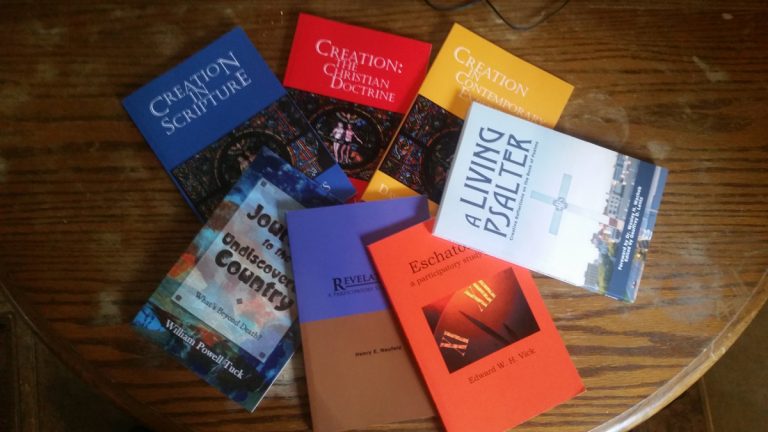Announcing According to John: The Word Became Flesh
This will be the second study. I’m going to mention a few things to think about. The question remains as to how many of these things I will be able to address, but I think it’s worthwhile to consider these in any case. The study will be via Google Hangouts on Air at 7:00 pm central time, Thursday, January 18. The event on Google+ is here. And here’s the trailer:
I’ll embed the YouTube below, but first, some things to think about! The major scripture for the study is John 1:1-18. If you haven’t read the book of John through completely recently, it will help to review the entire book.
Critical Issues
One issue of source (and to a lesser extent redaction) criticism comes up for this passage, which is the question of whether John 1:1-18 was written as part of the gospel or whether it is an early Christian hymn adapted for and incorporated into the gospel. There are some folks who regard it as poetry with some prose comments added.
Read the passage and pay special attention to the boundary between John 1:18 and 19.
Textual Issues
I’m going to list two, though one comes in two parts:
First, in verses 3 & 4 we have a verse division/sentence division issue. Should it read something like “… without him was not anything made that was made”? Or alternatively “… without him was not anything made. That which was in him was …”? You’ll probably find references to these two possible divisions in the footnotes to your translation. I just looked at the NRSV and REB as I was preparing this, and their notes are pretty clear. The NIV at BibleGatway.com isn’t showing a note. Does your Bible have a note?
The difficulty for the average student is that these translations don’t provide any justification for the decisions made. It would be impractical to expect them to. But if you have a Bible with study notes or a good commentary, you may find a bit more information.
Second, John 1:18 has two alternative readings, which the REB lists as “God’s only Son” (their text) and “the only begotten God” (alternative). Of course, if you read Greek, you should consult your apparatus to discover the evidence for these readings. How much difference does this make? What is the translation choice of the Bible you use? The NIV kind of combines the readings, while the NASB makes the opposite choice to REB and uses “the only begotten God.” I will definitely discuss this variant and something about how these choices are made.
Just for fun, I went through my files and extracted a paper on this verse that I wrote in college, for a course titled “Translation Problems.” Though it doesn’t have a date on it, I think this was in my junior year, which makes the paper more than 35 years old. Read it and see if you agree with my younger self! (I note here that this was written when I was still a Seventh-day Adventist, and references to Ellen White and “the Spirit of Prophecy” should be taken in that context.) Younger readers will doubtless be unacquainted with the quaint device used to produce this paper, a manual typewriter. If I remember correctly it was an old Remington, and no, it had no Greek font!
Theology
Well, combining theology and inter-textual relationships.
First, do you think the cultural/philosophical background for the phrase “the Word of God” should be taken from Greek thought (the word logos is so common in Christian speech that it has almost become an English staple!), or should it be found in passages in the Hebrew scriptures/Old Testament? This will have some impact on precisely how we read it.
Your answer doesn’t have to be one or the other. We discover the precise meaning of a word through it’s use in a particular context, and so this word can be shaped not only by the Gospel of John, but by the New Testament, and by its usage discussing concepts from the Hebrew scriptures, but from doing so in Greek.
Second, I want to explore a connection to one of my favorite books in the New Testament—Hebrews, and specifically Hebrews 4:12, though the prologue (1:1-3) comes into it. James Moffatt, in the International Critical Commentary volume on Hebrews, says: “Here the writer poetically personifies the revelation of God for a moment…. Here it [the Word of God] denotes the Christian gospel declared authoritatively by men like the writer, an inspired message which carries on the OT revelation of God’s promises and threats, and which is vitally effective” (p. 55). Moffatt distinguishes this from the usage in John 1:1-18.
Looking from the other direction, Leon Morris, in his volume The Gospel According to John (Revised) in the NICNT states that the only other place where the word (logos) is used undoubtedly with the same meaning is Revelation 19:13 (pp. 63-64).
I’m going to look at some elements of these two passages. Do you think they are more closely related?
Finally, I want to examine the concept of testimony. We start here with John the Baptist bearing testimony to Jesus, and near the end of the gospel we see Thomas brought to giving a testimony to Jesus: “My Lord and my God” (20:28)! We’ll tie this in later with the critical question of whether chapter 21 was originally part of the book or was added later as a sort of postscript.
Doubtless I will have many words on all these topics and perhaps a few more! The YouTube embed is below.

